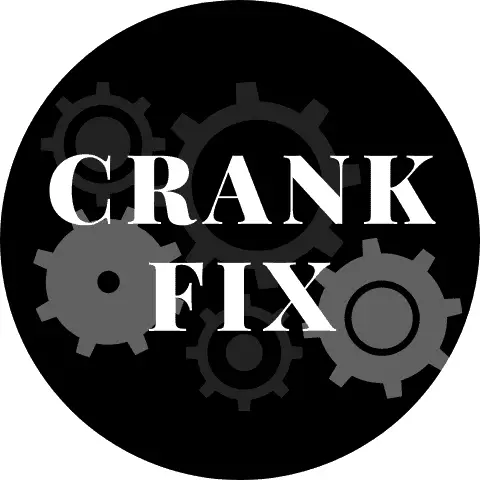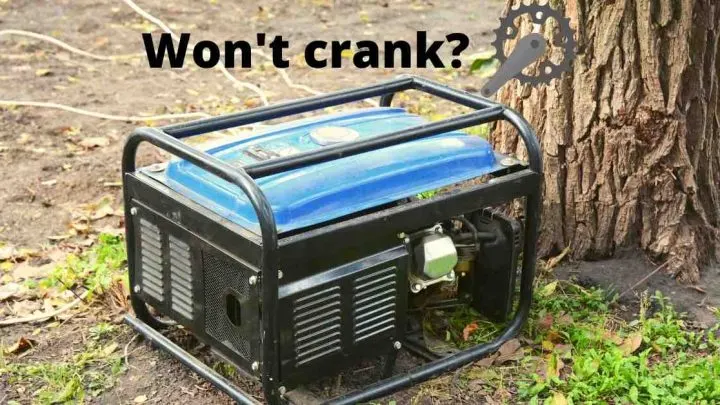Diesel generators are a great solution for when the power goes out. They’re reliable, sturdy, and get the job done. But what do you do when your diesel generator won’t start?
When your diesel generator won’t crank, a dead battery is usually the culprit. Check the terminals for corrosion and clean them if necessary. Replacing the battery might also help. You could also be looking at issues with your solenoid, wiring, or starter.
This article will explore each of these potential problems in more detail. I’ll also provide some general troubleshooting tips to help you get your diesel generator up and running again.
1. The Battery Is Dead or Weak
Batteries have a reputation for being fickle. They can die without warning, and when they do, your starter won’t have enough power to turn on the engine. This happens more often than you’d like, so it’s always a good idea to have enough money on hand for a replacement.
How To Fix
Before you replace your battery, take these preliminary steps:
- Check the battery terminals for corrosion. If they’re corroded, clean them with a wire brush or terminal cleaner.
- Check the battery voltage with a voltmeter. If it’s 12.6 volts or less, the battery is dead and needs to be replaced. If the voltage is close to 12.6 volts, the battery might be weak and on its way out. In this case, you can try charging it with a battery charger.
If the battery is still giving you trouble, you might need to replace it.
When buying a new battery, make sure to get one that’s compatible with your diesel generator. You should also consider getting a deep-cycle battery, which is designed for repeated starting and stopping.
2. The Starter Motor Is Bad
Think of the starter motor as the engine’s kickstart. It engages the flywheel when you start the engine. If the starter motor is bad, it won’t be able to engage the flywheel, so the engine won’t start.
How To Fix
If you suspect the starter motor is the problem, the first thing you should do is check the battery. The two issues are closely related so it’s wise to check both parts after experiencing a cracking issue. If the battery is okay, the starter motor will need replacing. This issue is better addressed by a professional.
3. The Solenoid Is Bad
A solenoid is an electromagnet used to engage the starter motor. When you turn on the generator, the solenoid engages the starter motor, starting the engine. If the solenoid is bad, it won’t be able to engage the starter motor, and the engine won’t crank.
How To Fix
If you suspect the solenoid is the problem, you should first check the battery. As I mentioned before, the starter motor is powered by a battery. If the battery is dead or weak, your solenoid won’t work. If the solenoid is the problem, it needs to be replaced by a professional.
4. The Wiring Is Bad
The wiring harness connects all of the electrical components in your diesel generator. If the wiring is bad, it can prevent the starter motor from engaging. It can also cause all sorts of problems like shorts and fires. If you suspect the wiring is the problem, you shouldn’t use the generator until it’s checked.
How To Fix
If you checked the wiring and you see signs of damage, you shouldn’t DIY the problem. Trying to fix the wiring yourself could be dangerous, as one wrong move can cause a short or fire. So err on the side of caution and have a mechanic address the issue instead.
Should You DIY a Damaged Diesel Generator?
You should not DIY a damaged diesel generator in most cases, as the repair can be dangerous. If you are not careful, you could end up causing a fire or severe injury. That said, some people are perfectly capable of repairing their generators.
Here’s a checklist that can help you decide whether to DIY a damaged diesel generator or not:
- Assess your skill level. This is the best way to know if you are fit for DIY repair. If you’re not confident in your ability to repair diesel generators, you shouldn’t even attempt it. It’s better to be safe than sorry.
- Consider the severity of the problem. If it’s a simple fix (like replacing a battery), you might be able to do it yourself. But if it’s a more complex problem, you should take it to a mechanic.
- Consider the cost of repair. If you’re going to take your generator to a mechanic, you need to factor in labor cost. It might be cheaper to buy a new generator, especially if your generator is old or damaged.
- Consider the cost of tools and parts. If you’re going to repair the generator yourself, you need to have the right tools and parts. Otherwise, you might end up causing more damage to the generator. In some cases, the cost of the tools and components can be higher than the cost of labor.
Other Things To Know About Diesel Generator Maintenance
When it comes to diesel generators, you’ll want to buy a good one in the first place, so maintenance expenses will be kept to a minimum. A solid brand like Caterpillar, Cummins, or Generac will be easier to work on than a no-name brand. That said, all generators will eventually need some form of maintenance or repair (source).
You also want to keep up with the recommended maintenance for your generator. This varies depending on the model, but generally speaking, you should be doing some form of maintenance every 100 hours or so.
By keeping up with the recommended maintenance, you can prevent common diesel generator problems from happening in the first place.
Final Thoughts
There are a few reasons your diesel generator won’t crank. They include a dead or weak battery, or damage to the starter motor, solenoid, and wiring. You can fix some of the root causes of these problems on your own, but others require professional help.
Recommended Reading

